Top 10 Motorhome FAQs
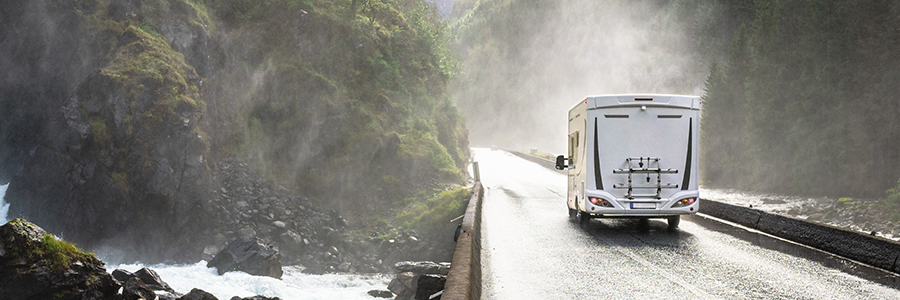
Is there any better feeling than embarking upon an adventure on your own terms with a newly purchased motorhome? The RV lifestyle is one that many people dream of, but naturally, you'd have some questions before taking the plunge. That's why the experienced O'Connor RV team has put together an extensive list of common questions to help you make an informed decision before purchasing your very own RV!
1. What Are the Different Types of RVs?
Mobile homes come in all sorts of styles, sizes, and functionalities. To figure out what type might be right for you, here’s a breakdown of all the RV types we have to offer at O’Connor RV!
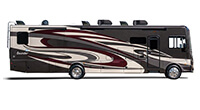
Motorhome
A motorhome is a vehicle combined with a living quarter that ranges in size depending on its class. Class A units will be large and bus-like. Class B units are much smaller converted vans suitable for 1-2 people. Class C is more of a mid-sized vehicle that can sleep 2-4 people. Click here to learn more about the differences among all three motorhome classes!
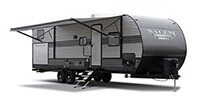
Travel Trailer
Travel trailers are the most common of RV types. Some can be large and luxurious, while others are more modest and lightweight. They typically include a range of comfortable amenities like a kitchen, toilet, sleeping quarters, heating and cooling functionality, and storage space.
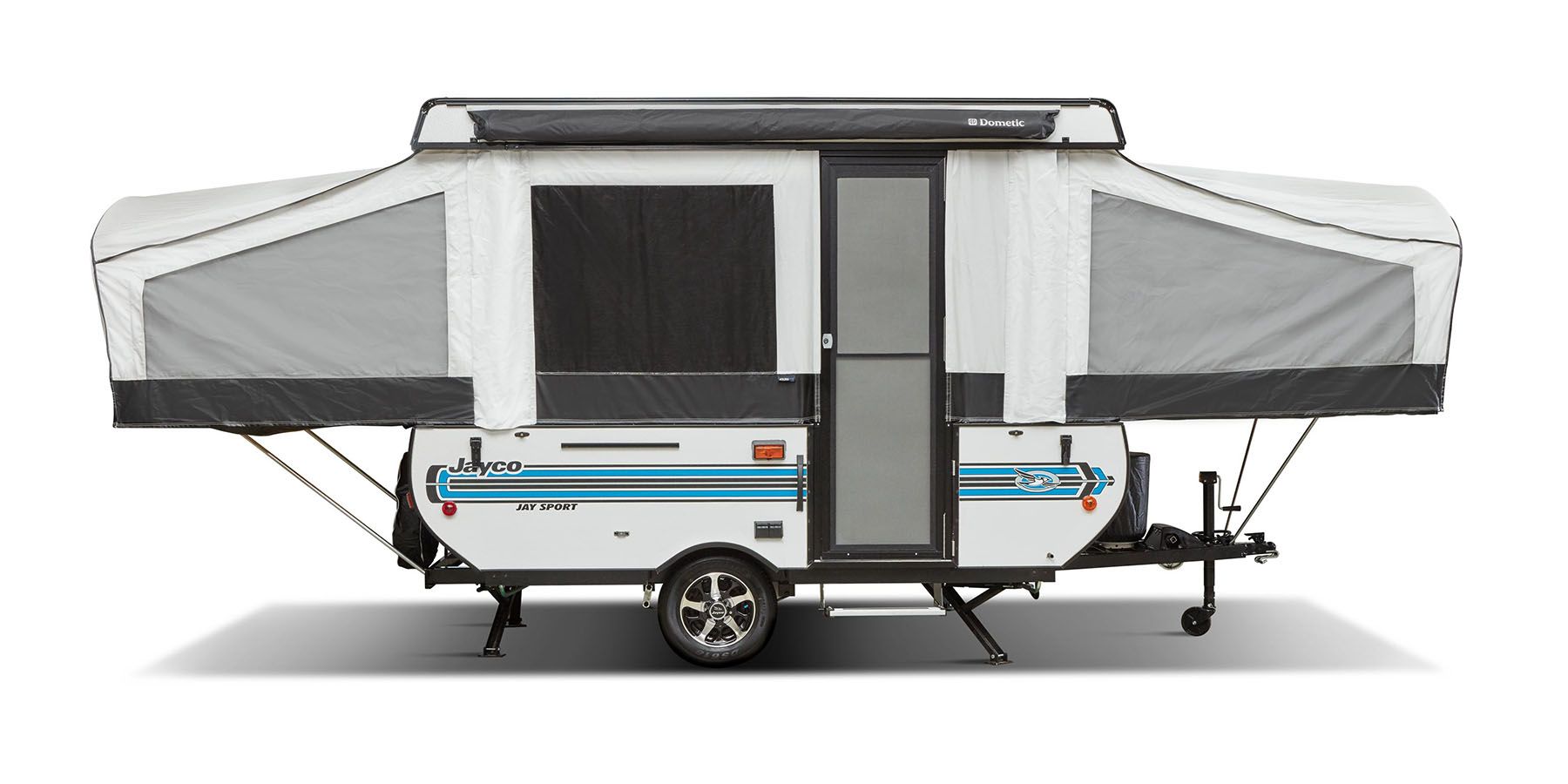
Tent Camper
A tent camper, also commonly known as a pop-up camper, is a smaller travel trailer that includes separate pop-up sections that provide additional space, such as sleeping quarters. These RVs are compact and lightweight, easy to tow and park, and offer a tent-like feel that replicates traditional camping.
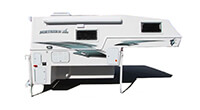
Truck Camper
Truck campers are designed to sit on the top of a pickup truck bed, turning your truck into its own mobile home. Truck campers can typically sleep 1 to 3 people comfortably and are very easy to transport as virtually no hitching or towing is involved!
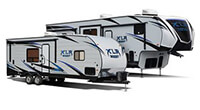
Toy Hauler
Toy haulers are a unique type of RV that not only function as living quarters, but also provide additional space for your gear. From snowmobiles to dirt bikes, toy haulers offer a considerable amount of storage space for all the “toys” you want to bring along on your adventures!
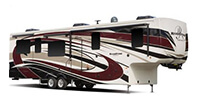
Fifth Wheel
Fifth wheels are comparable to truck campers, except that these RVs need to be connected to the pickup truck using a gooseneck hitch that sits in the truck bed rather than the bumper. These RVs are typically very spacious and easy to handle on the road!
2. What Motorhome Class is Right for Me?
Choosing a motorhome class is dependent on what size is most suitable for you and your travel adventures. Think about how many people you plan to fit. Are you a family of 4? You might be okay with a Class C. However, if you also want lots of space for storage items, Class A might be best. Looking for independence on a solo getaway? Class B sounds about right for you!
3. Are Class A Motorhomes Difficult to Drive?
Motorhomes are relatively easy to drive. They're not too tricky to navigate, and modern motorhomes often come equipped with 360-degree cameras that give you a good view of your surroundings. If a motorhome is exceptionally long, turns can be somewhat difficult - you might want to practice turning without hitting the cars to your sides, or overestimating the break in traffic into which you’re trying to fit.
4. Do I Need a Special License to Own or Drive an RV?
This all depends on what region you are from. Here in B.C., you can use a regular license to tow a loaded RV of up to 4600-kg, but will need to upgrade your license if the GVW (gross vehicle weight) exceeds this weight. Ontario licensed drivers can legally tow up to the same weight under a Class A license, but will need a full G license for a limit of 11,000-kg GVW.
5. Can You Take Motorhomes Off-the-Grid?
Yes! Going off the grid in an RV is surprisingly doable. In fact, many modern RVs are designed with this function in mind and are typically set up with systems that simplify the process. Check out this helpful video for some tips!
6. Can I Tow a Car Behind My RV?
Most motorhomes have the ability to tow a vehicle! The only limiting factor is the weight capacity of your RV, and the towing method you use. Be sure to check these specifications in your owner’s manual before you decide to tow a vehicle!
7. How Much Does It Cost to Store an RV in the Winter?
For unheated indoor storage, rates typically range from $50 to $125 monthly. If you want to have your RV protected from the winter cold, heated RV storage can cost anywhere from $100 to $450 per month. Prices for storing your RV will always be dependent on its size as well as the amenities it carries. Learn more about winterizing your RV!
8. How Much Does It Cost to Maintain an RV?
The cost of maintaining an RV can vary depending on regular maintenance and upkeep as well as any repairs. These costs can be anywhere between a few thousand annually, to $20,000 for huge upgrades and repairs. Two of the most significant maintenance costs tend to be tire and suspension upgrades. However, it's good to note that if you opt for extended warranties, a considerable portion of these costs can be taken care of for you. Ask our financial team about the best ways to protect your investment!
9. How Much Does It Cost to Fill an RV (Class A, B, C)?
The bigger the motorhome, the more gas it will consume. For example, a Class A RV will use 18 to 30 litres per 100-km, while a smaller Class C can use 16 to 23 litres. If you go for a compact Class B motorhome, expect to get an economical 11 to 13 litres, if not better! The average tank capacity on a Class C motorhome is about 55 gallons, so depending on the cost of gas it might cost up to $450 to fill ‘er up. Also, note that packing light and slowing down on the road can help cut down on fuel costs.
10. Can I Test Drive Before I Buy?
Absolutely! In fact, for your own peace of mind, we wouldn't suggest buying from a dealership that doesn't allow this. And we wouldn't be surprised if by the time you've gotten this far that you weren't eager to!
Whether you’re in the market for a fifth wheel, a travel trailer, or a luxury Class A motorhome, O'Connor RV certainly has you covered! Give us a call at 1 (877) 912-3909 or stop by anytime to check out our inventory of RVs and set up a test drive today!